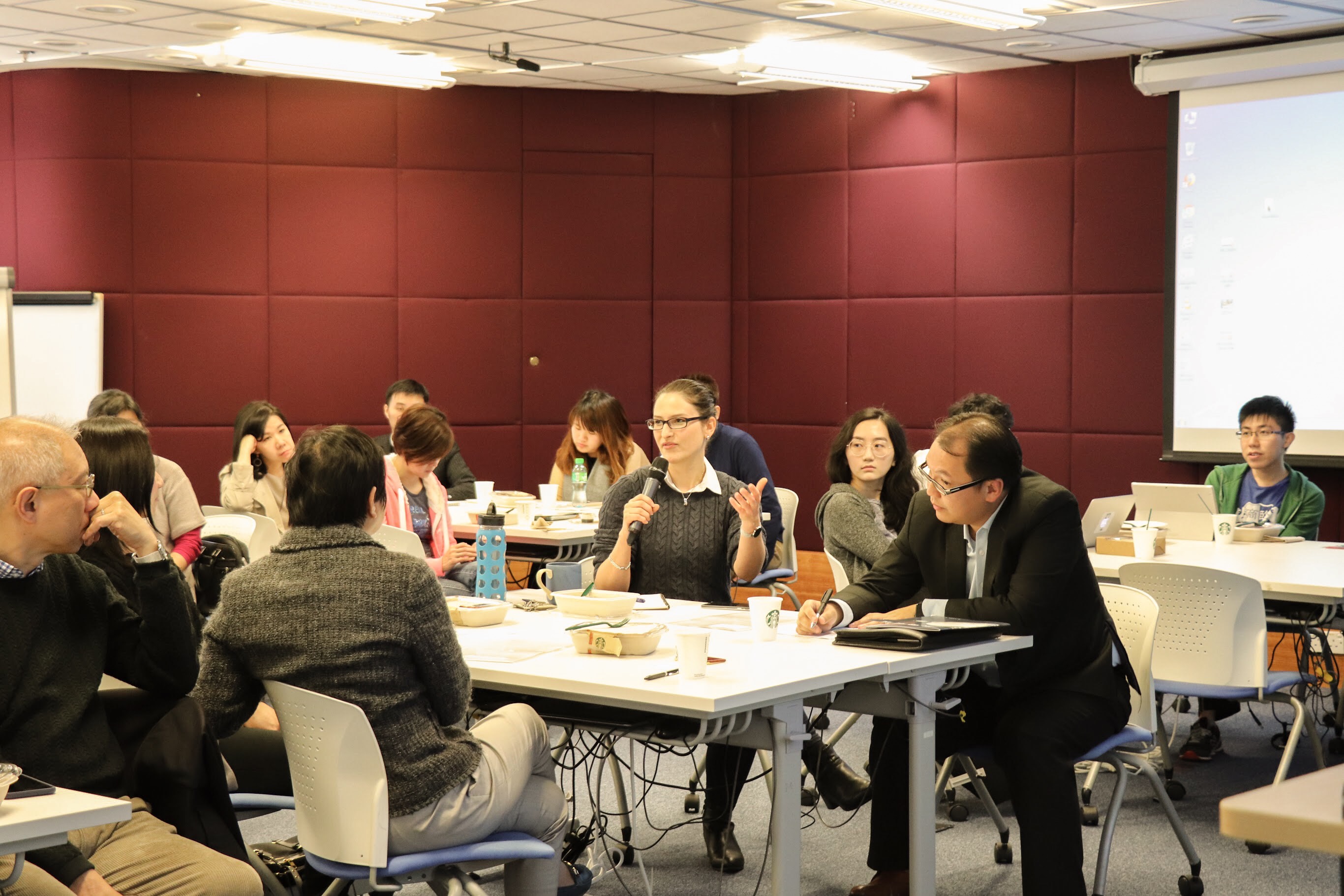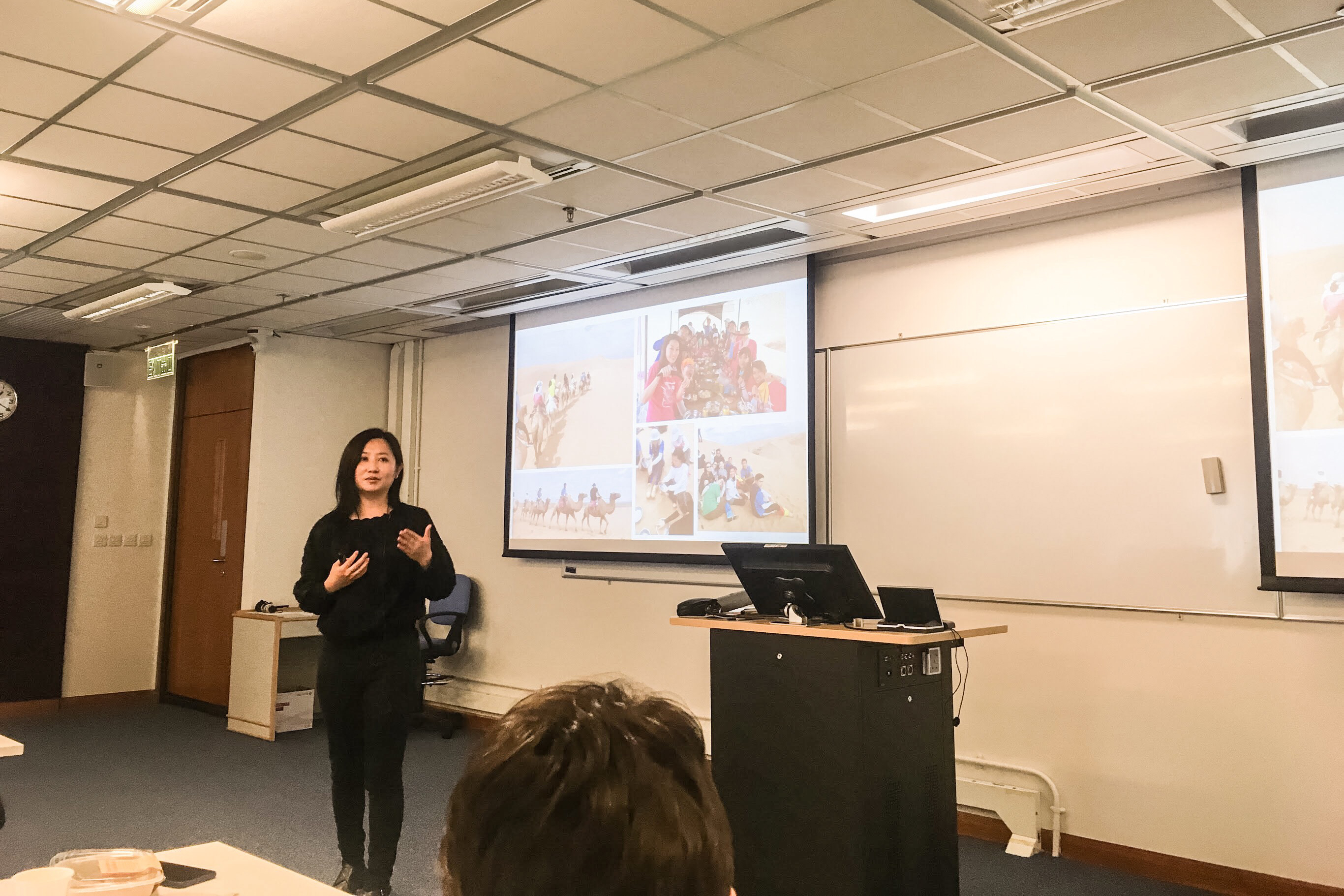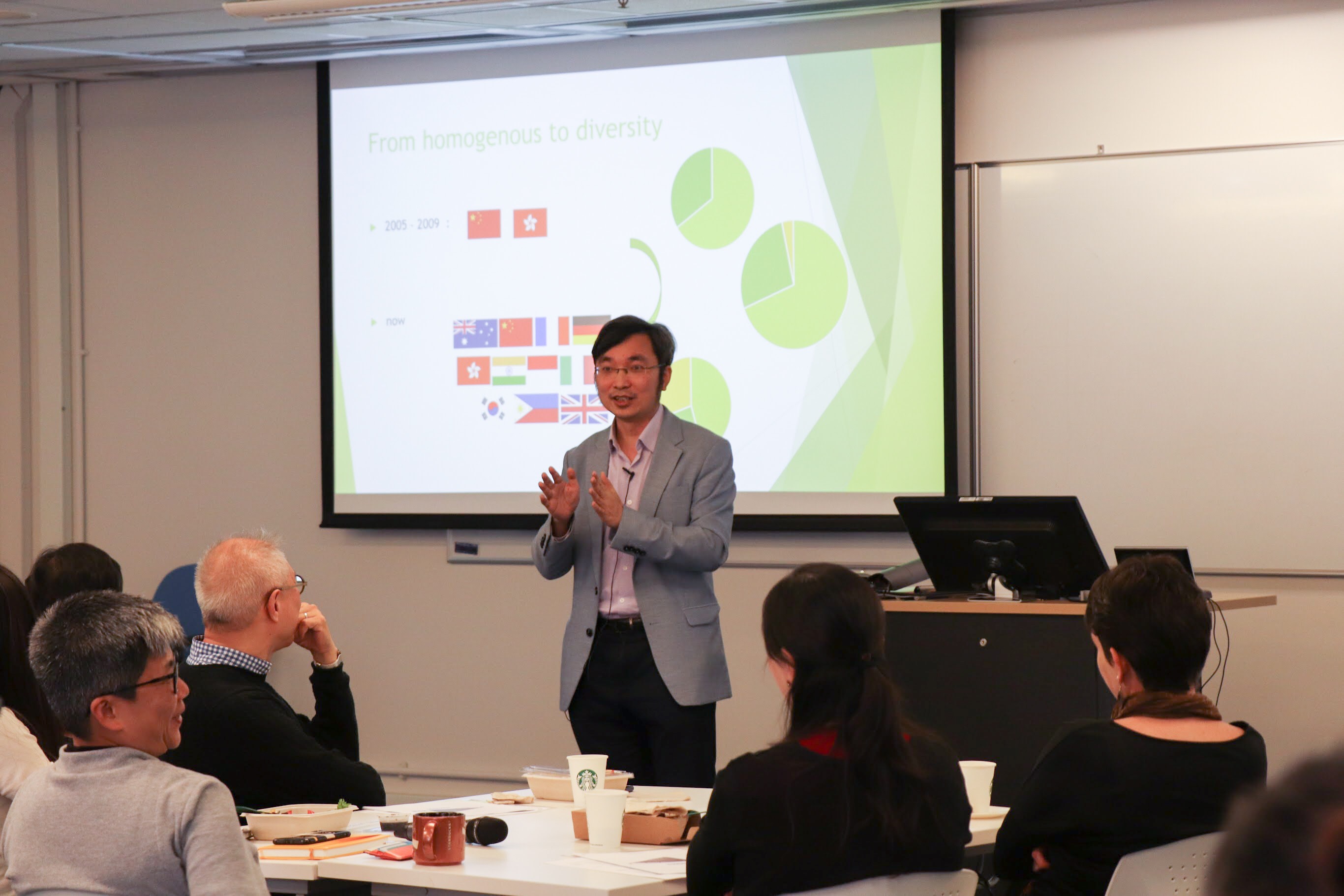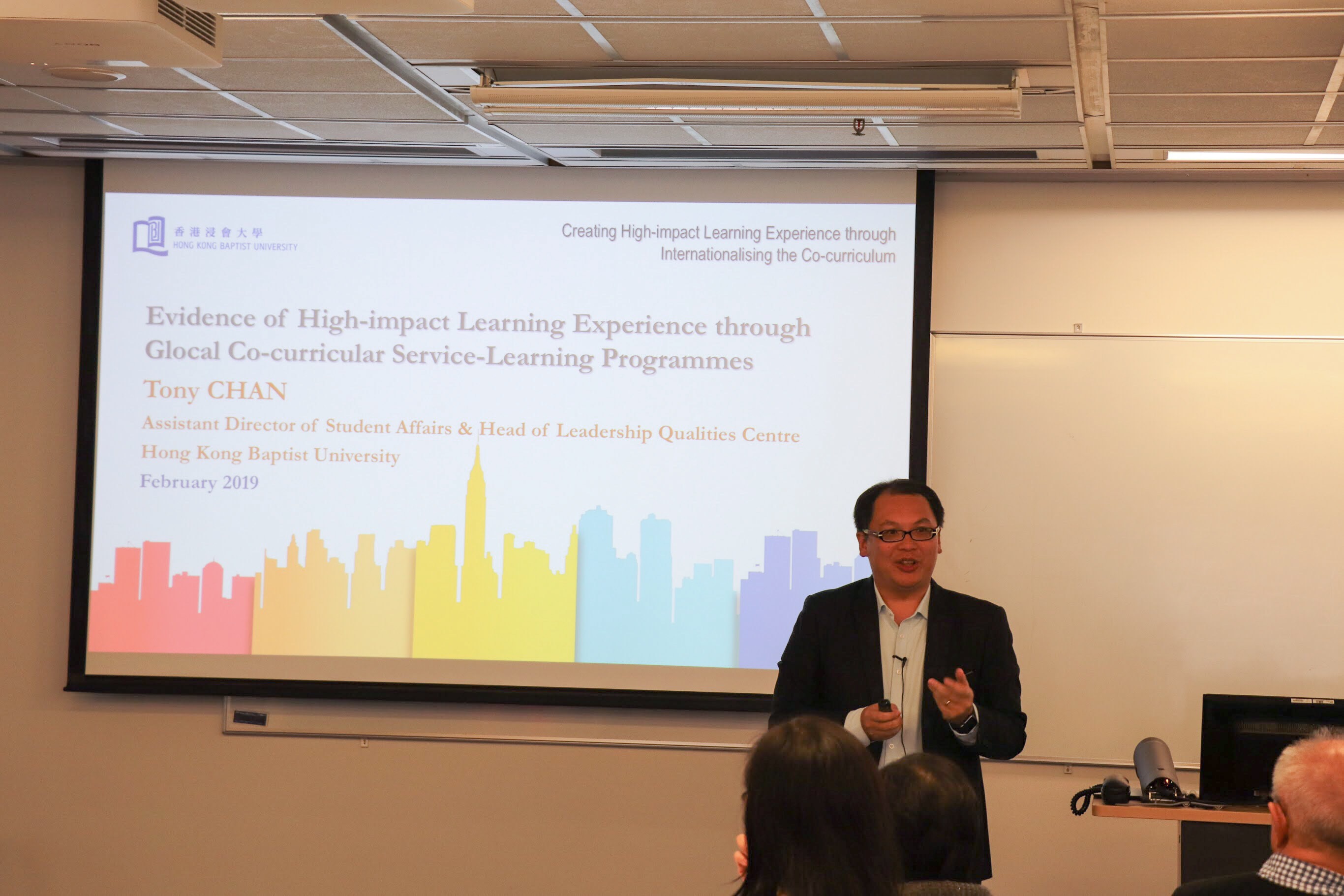Internationalisation of the Co-Curriculum – What’s Next?
By Nicole Lai
Internationalisation is gaining momentum in higher education. A lot of universities around the world are dedicated to developing their curriculum that nurtures students as global learners. What about co-curriculum? Have you ever thought of internationalising the co-curriculum that can also create high-impact learning experience for our students? The fifth Join-the-Conversation event, held on 22 February 2019 at HKUST, brought together forty participants across different institutions and had a great discussion at the end echoed with the invaluable sharing from three speakers across different institutions and departments.
Dr. Beatrice Chu started the event by recapping the aims and focal areas of CoP – ITL, and followed by two stimulating questions for participants to bear in mind before the speakers’ presentations. They are (1) “how can co-curricular programmes foster the development of intercultural competence development?” and (2) “how can intercultural competence constitute to the competence and skills that are required in the 21st century?”
Our first speaker, Prof. Tim Woo from the Department of Electronic and Computer Engineering, HKUST, illustrated how students from different cultural backgrounds and disciplines worked together towards a common goal in the HKUST Robotics Team. As a team having more 70 members with more than 12 nationalities, Tim pointed out that appreciation of the support from senior members and utilisation of the cultural differences among team members are the keys to developing students’ learning, holistic well-being, problem-solving and intercultural skills. He also highlighted the importance of teachers being the facilitators in the classroom and in co-curriculum activities as they are the ones who develop students’ attributes and empower students’ learning journey through four stages: (1) gathering students of common interests, (2) developing their core values, (3) encouraging the learning, and (4) obtaining feedback.
Our second speaker, Dr. Janet Chan from the School of Biological Sciences, HKU, shared with us her environmental trip in the Shanxi Province as she believes participating in co-curriculum programmes is an integral part of students’ learning journey. Through serving the community in Mainland China, in partnership with three NGOs, the Programme, ‘Evergreen Woodland’ Service Camp, provided an opportunity for students to apply, develop, and reflect on their acquired knowledge and attributes in order to impact the community. Participants enriched their learning experience in global environmental issues, such as climate change and desertification, by engaging in tree planting in Mu Su Desert and sand-protection barrier building in Baiyu Mountain. The programme allowed students to work on some deliverables. Janet incorporated the elements of cross-cultural encounters, the use of social media for learning, partnerships and development of global citizenship into her programme which aligned with the strategic goals of HKU to promote Internationalisation, Innovation, Interdisciplinarity and Impact.
Our last speaker, Mr. Tony Chan from the Leadership Quality Centre, HKBU, demonstrated how co-curriculum programmes can empower students to become committed global and local citizens while facing global challenges. The Service-Learning Global Internship Programme (SLGIP) 2018, a 4-8 weeks of non-credit bearing service-learning programme involving 45 students from different majors and collaborations with 19 NGOs, was used as an example to elaborate the idea of engaging students in different service-learning projects to develop their attributes (i.e. Attitude: Intercultural attitude and global citizenship; Knowledge: interdisciplinary and intercultural knowledge; and Skills: Intercultural skills). Tony believes that the co-curriculum programme has deepened students’ understanding of global issues as exemplified by students’ weekly online journals on the designated Facebook page and by their reflective journals.
Towards the end of the event, some issues and questions relevant to internationalisation of teaching and learning in the co-curriculum were raised and discussed in the panel discussion session. For example,
- How can the organisers, on behalf of the University, protect students from certain safety issues while arranging overseas internships/ experiential learning/ study tours?
- What are the ways to maintain the sustainability of those one-off events so as to transfer their experiences and attributes year after year?
- How can we translate these good experience and practices in the co-curriculum back to the formal curriculum?
The event ended with remarks by Dr. Beatrice Chu that CoP – ITL welcomes interested and likeminded participants to sign up for the community of practice (https://www4.talic.hku.hk/cop-itl/).
Cite this item
Lai, N. (2019, May). Internationalisation of the Co-Curriculum – What’s Next?. CoP – ITL Buzz, 6. Retrieved from https://www4.talic.hku.hk/cop-itl/whats-happening/enewsletters/issue-06/internationalisation-of-the-co-curriculum-whats-next/.





